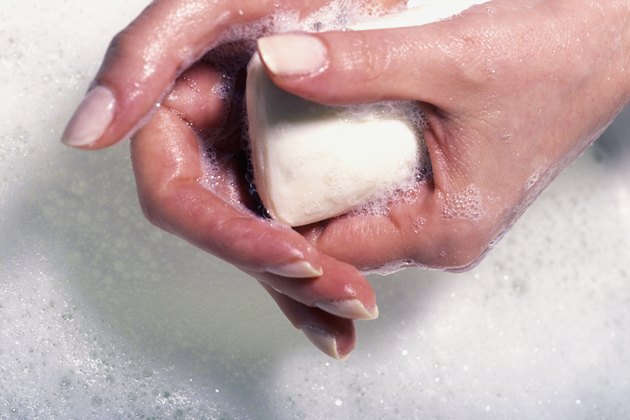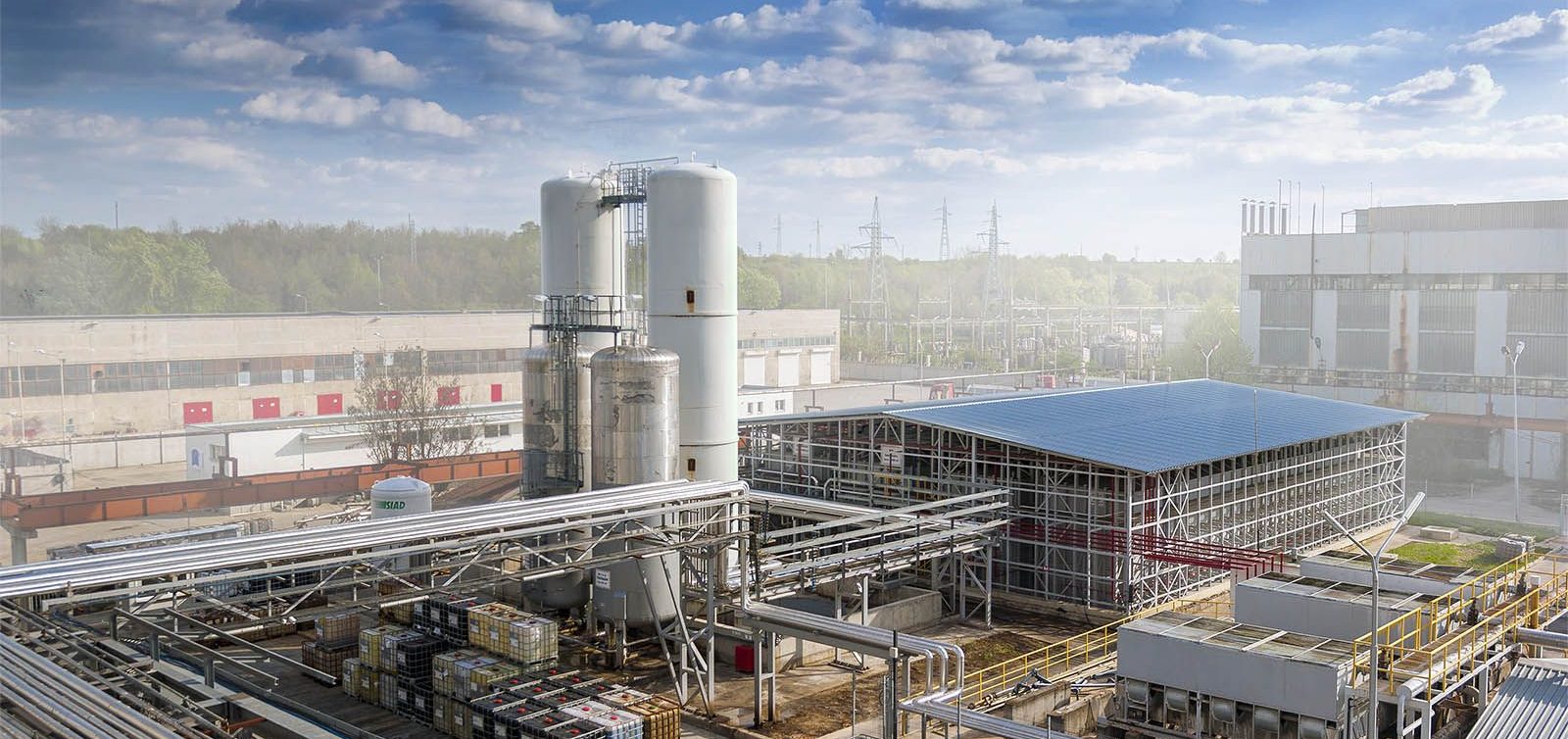Wright’s Coal Tar Soap is an antiseptic soap that was first produced commercially in England in the mid-1860s. According to Grace’s Guide, a site that recounts the history of prominent British industries, the original Wright’s Coal Tar Soap included a byproduct from the coal distillation process and was considered an excellent treatment for skin problems such as psoriasis or eczema. Modern versions of coal tar soap no longer contain coal products–the European Union has banned them from non-prescription items. However, Wright’s Coal Tar Soap retains the look and smell of the original soap, only with different ingredients.

Sodium Tallowate
One of the main active ingredients in Wright’s Coal Tar Soap is sodium tallowate. Cosmetics Info.org reports that sodium tallowate is made from the fat, or tallow, from sheep or cattle adipose tissue reacted with sodium hydroxide. Sodium tallowate acts as a surfactant, a compound that allows water to combine with both the ingredients of the soap and dirt on the skin’s surface so that the dirt can be washed away. Sodium tallowate also helps form and stabilize the soap’s ability to foam when mixed with water.
Sodium Cocoate
Sodium cocoate is the scientific name for coconut oil. In Wright’s Coal Tar Soap, sodium cocoate works with sodium tallowate as a surfactant, allowing water to remove and wash away dirt from the skin. Sodium cocoate also functions as an emulsifier, a compound that allows the different ingredients in the soap to blend and bind together smoothly.
Glycerin
Cosmetics Info.org reports that glycerin, a sugar alcohol that is a part of all organic fat and oil sources whether plant or animal, is a common ingredient in soaps. Glycerin functions as a humectant, a substance that attracts and retains water. Because of its water-attracting properties, glycerin is a powerful skin softener and moisturizer; it is included in Wright’s Coal Tar Soap because it makes the skin feel smoother and more supple after use.
Coal Tar Fragrance
Modern Wright’s Coal Tar Soap does not contain any of the coal byproducts that the original versions of the soap utilized as their main ingredient. The coal tar fragrance is added in, however, to preserve the traditional smell of the original 19th-century soap products.
Sodium Chloride
Sodium chloride is simply the chemical name for table salt. Cosmetics Info.org explains that in soaps such as Wright’s Coal Tar Soap, sodium chloride is used as a thickening agent to increase the liquid and water portion of the soap ingredients.
EDTA
EDTA is ethylenediamine tetraacetic acid, and it is added to Wright’s Coal Tar Soap as a preservative. According to Cosmetics Info.org, EDTA binds to and inactivates the metal ions within mixtures that, over time, could cause the product to deteriorate and become rancid.
Pigments
Wright’s Coal Tar Soap uses pigment yellow 13, also known as benzidine yellow, and pigment red 3, known as toluidine red in combination to make it a distinctive orange color.

